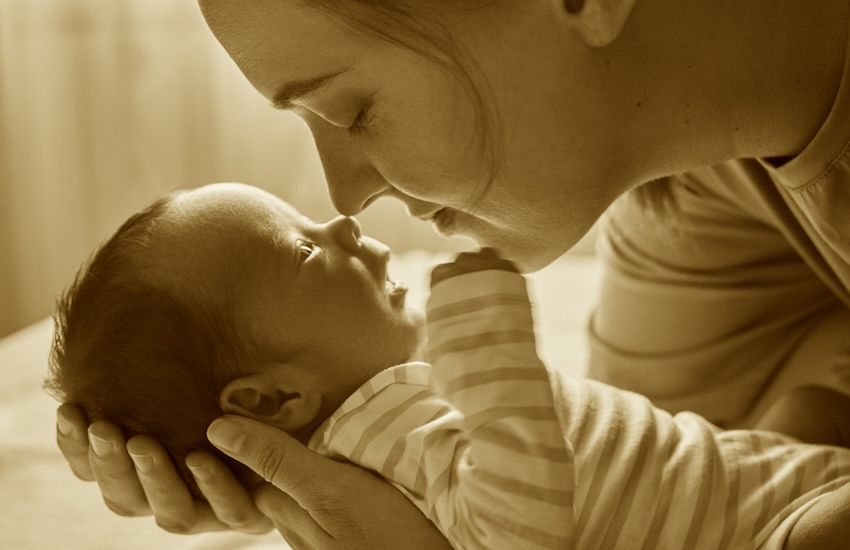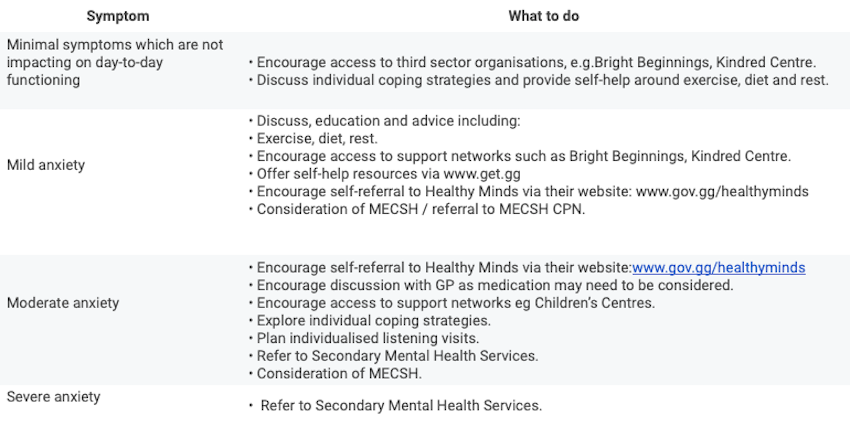


A data vacuum means that Guernsey’s government has no clear idea how many women in the island experience postnatal depression.
During a States question time earlier this year, Deputy Andrea Dudley-Owen asked what the rates were and at the time received no response.
Follow-up questions by Express have confirmed the lack of centralised data on this issue.
In a detailed piece discussing the wider implications of postnatal depression, Deputy Dudley-Owen said she was “astonished to be told that at government level, we do not keep track of the number of women each year who suffer from and receive support for this serious mental health issue.”
“It is alarming that the implications of this frequently overlooked mental health condition - triggered by various factors and affecting one in five mothers according to UK statistics - can be so profound.
“If left unchecked, it can lead to family breakdowns, difficulties in bonding between mothers and their babies and, in the most tragic cases, even death.
“Locally, support for perinatal mental health continues to be delivered through various channels, making data collection challenging. These include frontline Maternity services, Health Visitors, and the Bright Beginnings Beyond Blue program. I understand this third-sector service is in high demand and is one of several valuable pathways available in our community.”
It was evident that frontline Maternity services in Guernsey, along with government, third-sector, and private organisations, work diligently to support parents and ensure the safe arrival of babies, she said.

Pictured: Deputy Andrea Dudley-Owen.
“Despite the comforting presence of support pathways on the island, it is unacceptable that we lack awareness of the number of mothers and families needing assistance. I plan to ask further questions to identify the barriers that may hinder data collection.”
The first 1,001 days of a child's life are critical for their development, she added.
“Therefore, ensuring that mothers are well-supported and cared for has a profound effect on their children's outcomes. This issue is not solely about statistics—it is fundamentally about a people-centred, needs-based approach. However, the States needs data to understand how best to achieve this goal and to shift the culture.”
It was vital that our society truly cares about and supports the welfare of our mothers and babies, she said.
A Health and Social Care spokesperson said: “‘It is not possible to provide an indication of the number of women who experience postnatal depression, or the rates of postnatal depression, because some people will seek support from their GP and/or from the third or private sector and may not have a need or desire to engage with services provided by Health & Social Care or share this information with them.
“In addition, whilst an individual may be diagnosed with postnatal depression and clinically coded in this manner in Primary Care, recovery from postnatal depression will not always be recorded and coded as an individual may just not return to their GP when their mental health and wellbeing has improved, or they have received support from other services and this may not be coded within their Primary care record.”
The committee provided a summary of the support that is available to women and their families, but stressed it was not all-encompassing as support may also be provided elsewhere:
We now have one WTE Registered Mental Health Nurse within the Health Visiting and School Nursing team (approx. 50% in each area) who provides support for perinatal mental health.
We have an established perinatal mental health clinical guideline to support operational service with the team CG2801, which is currently under review. This is a Specialist Community Public Health Nursing guideline and not a HSC wide guideline, however it has been developed in consultation with other services and refers to collaborative working with them;
Parental mental health is a key focus of the Healthy Child Programme that we deliver in the Bailiwick, details of this can be found HERE: e-lfh.org.uk/pathways-healthy-child/
The Health Visiting team works collaboratively with Maternity Services to identify those parents at greater risk of experiencing poor postnatal mental health, which facilitates the provision of targeted services to this most at risk;
The Whooley mental health screening questions are asked at each contact up to the child reaching the age of two; and
If a positive response is received to the Whooley questions or there is a clinical indication to do so, then GAD7 and PHQ9 screening is offered and completed where accepted.
Individuals can self-refer, or be referred by their GP, to the States of Guernsey Healthy Minds service where a variety of therapeutic help is available.
Depending on the results of these tools, parents will be offered the appropriate level of support. The tables below provide some guidance about the nature of support that may be on offer:

Pictured: Symptoms of postnatal depression.
Comments
Comments on this story express the views of the commentator only, not Bailiwick Publishing. We are unable to guarantee the accuracy of any of those comments.